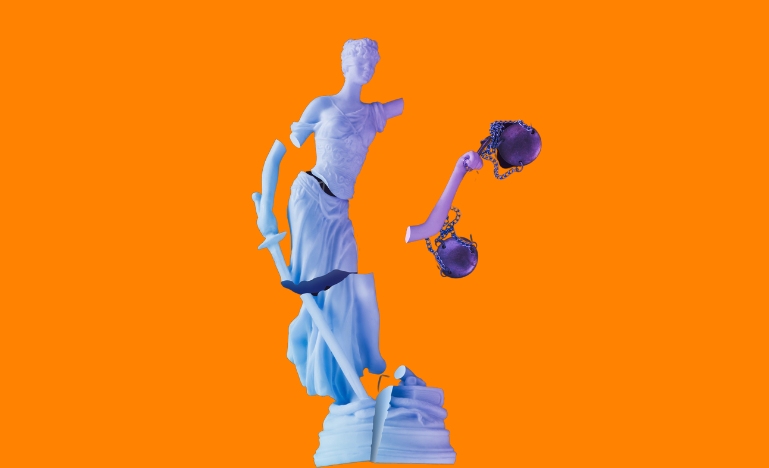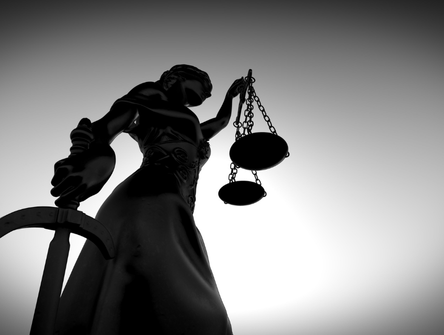The civility of judges
We mustn't ignore that issues with incivility in the profession are not just about lawyers.

When discussing civility in the legal profession, the focus is generally on lawyers. However, little attention is given to the civility of judges. It’s a topic shrouded in taboo, perhaps because of the belief and suggestion that judges lacking civility are not impartial. And yet, judges are not immune from uncivil conduct, and ignoring this fact only perpetuates the civility problems that plague the legal system. It’s time we abandon the notion that judges’ conduct is beyond reproach so that we can revamp structural mechanisms that serve to hold judges accountable.
The rule of law is fundamental to our democratic institutions and is supported by several important considerations, including the requirement that lawyers and judges display professionalism, civility, integrity, and ethical conduct. However, what constitutes “civility” is the subject of common misconceptions. Civility is not synonymous with professionalism or legal ethics. These concepts co-exist, support, and nourish one another, but have different meanings and must be understood as distinct concepts.
How lawyers and judges conduct themselves when interacting with one another and with third parties is a matter of civility. Professionalism pertains to the conduct of lawyers and how it can undermine the integrity of legal institutions. Ethics centres on the moral principles governing the actions of lawyers and judges. While these concepts overlap, incivility does not necessarily amount to a breach of professional or unethical conduct. The extent of overlap between these notions remains a topic of academic debate, with some suggesting a complete overlap is necessary. However, the legal profession and the rule of law are not well-served if civility is viewed merely as a subset of professionalism or ethics.
Not only has the civility of judges received little to no scholarly attention in Canada, the Canadian Judicial Council (CJC), which oversees judicial conduct, has reference documents on ethical conduct, including Ethical Principles for Judges, none of which deal exclusively with civility. Rather, it is blended with professional and legal ethics, minimizing its overall importance. This poses an impediment to holding the judiciary accountable.
The challenge we face is twofold. First, we must define civility; second, we must promote it in the judiciary.
It’s also important to understand our Canadian context when it comes to civility. Judges here are chosen from a bar that struggles with civility. In contrast, judges in many European countries won’t necessarily practise first as lawyers. Often they chose their vocation as law students at the outset. Under these legal systems, there is ample opportunity to promote civility as part of their legal training.
In Canada, we somehow expect issues of incivility to disappear once a member of the bar is appointed to the bench. And yet, we read about decisions where judges unnecessarily chastise counsel or use unacceptable language to criticize the decisions of other members of the judiciary. In some cases, retired judges have even authored articles critical of appellate courts who have reviewed their decisions as sitting judges. Each of these is an example of judicial incivility.
Civility is undoubtedly hard to define. To some, it is merely a form of polite and courteous behaviour and speech. To others, it is much more. Even so, definitions of civility do exist. In the United States, where judicial civility is taken seriously, several states have enacted civility codes that apply to lawyers and judges alike. They serve as guidelines and often run parallel to ethical and professional codes. While these codes vary in defining civility, the principles are universally accepted.
The Supreme Court of Canada accepted in Groia v. Law Society of Upper Canada that standards of civility can be articulated with a reasonable degree of precision, thereby allowing stakeholders to steer clear of the boundary. The Advocates’ Society has published guidelines primarily for the benefit of lawyers, but which include a section on what advocates can expect from the judiciary. Though not a complete code, let alone one that targets judges, the document illustrates that it is possible to define a civility standard.
While most lawyers and judges have a good sense on what constitutes civility, no single source document exists for judges. The CJC doesn’t have a document that sets down clear markers for judges. This gap should be filled, not as an instrument of discipline, but as a document that articulates general civility principles that reinforce the rule of law. The CJC should also have a more robust complaint process that addresses the conduct of judges. The Canadian experience pales in comparison to other jurisdictions, such as the United Kingdom, which actively promotes public complaints, investigates them, and publicly reports on them. Few lawyers know how to file a complaint and little to no information is offered by the CJC on what has been investigated.
There is no good reason for that. Civility in the profession is not just about lawyers and if progress is to be made, all parts of the legal system must be considered.
*The views of the author are his own and do not reflect that of his employer.


